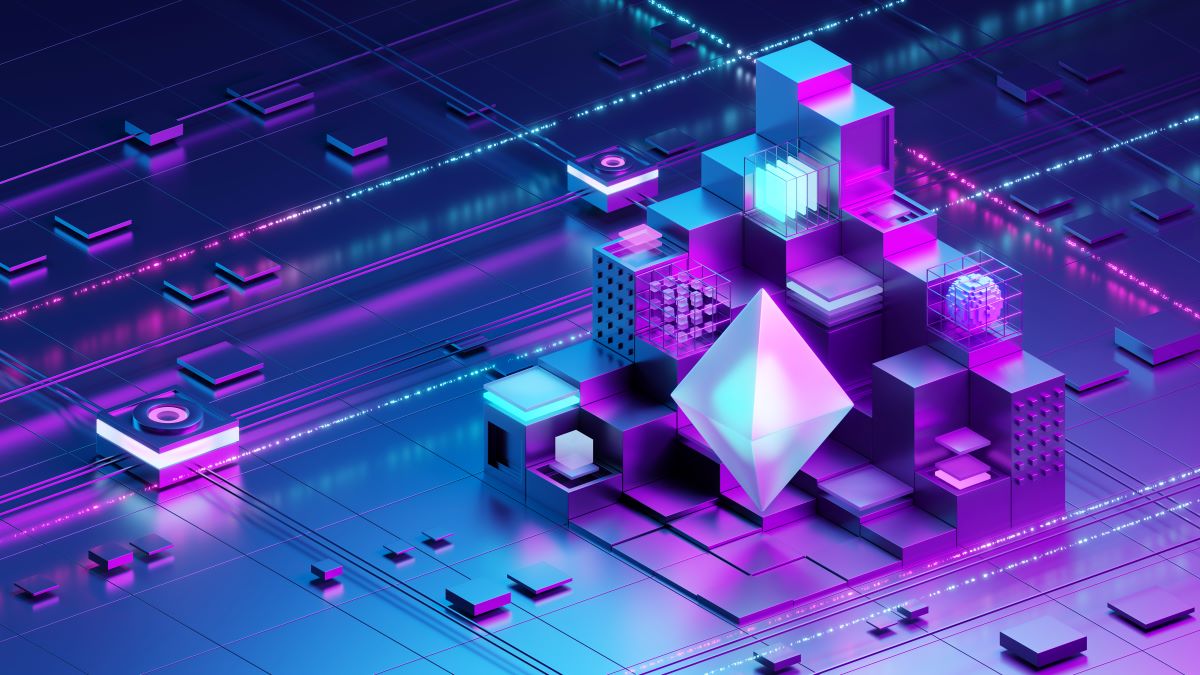The rise of Non-Fungible Tokens (NFTs) has not only transformed digital ownership but has also reshaped the gaming industry, introducing players to a new era of true asset ownership and decentralized gaming economies. The choice of blockchain plays a pivotal role in determining the success and sustainability of NFT games.
In this exploration of the best blockchains for NFT games, we’ll delve into the features and capabilities that set certain blockchains apart, providing a comprehensive guide for players and developers seeking to immerse themselves in the world of blockchain-powered gaming. Interested in the space of NFT and blockchain games? Check out Chainplay for more Web3 Gaming news and updates.
Ethereum: The Pioneer and Powerhouse
Ethereum, the pioneer in smart contract platforms, stands as the powerhouse behind the majority of NFT games. Its robust and well-established infrastructure, coupled with the widespread adoption of the ERC-721 and ERC-1155 standards for NFTs, has made it the go-to blockchain for gaming developers. Ethereum’s expansive ecosystem provides a rich environment for developers to create and deploy complex gaming smart contracts, ensuring a diverse array of NFT games with varying themes and mechanics.
Despite its dominance, Ethereum has faced challenges related to scalability and high gas fees. Layer 2 solutions like Optimistic Rollups and sidechains aim to address these issues, making Ethereum a formidable choice for NFT games that prioritize security and an established user base.
Binance Smart Chain: Combining Speed and Affordability
Binance Smart Chain (BSC) has emerged as a strong contender in the NFT gaming space, offering a compelling combination of speed and affordability. Built by Binance, one of the largest cryptocurrency exchanges, BSC supports the BEP-721 and BEP-1155 standards, equivalent to Ethereum’s ERC-721 and ERC-1155. The lower transaction costs on BSC make it an attractive choice for developers and players alike, fostering a more cost-effective and inclusive gaming environment.
BSC’s growing ecosystem and compatibility with the Binance exchange provide developers with a platform to reach a vast user base. While not as decentralized as Ethereum, BSC’s efficiency and lower fees make it an enticing alternative for NFT games that prioritize accessibility and cost-effectiveness.
Flow: Tailored for High-Performance Gaming
Flow, designed specifically for high-performance blockchain gaming, has gained prominence as a blockchain tailored to meet the demands of NFT games. Developed by Dapper Labs, the creators of CryptoKitties, Flow provides a unique architecture that separates computation and consensus, enhancing scalability and performance. Flow supports its native standard, the Flow Token standard (FT), ensuring a seamless and efficient gaming experience.
The NBA Top Shot platform, built on Flow, exemplifies the blockchain’s capabilities by handling high transaction volumes associated with digital collectibles. Flow’s focus on scalability and user-friendly design positions it as a top choice for developers aiming to create visually stunning and high-performance NFT games.
Polygon: Bridging Scalability with Ethereum Compatibility
Polygon, formerly known as Matic Network, serves as a layer 2 scaling solution for Ethereum, addressing the scalability challenges faced by the network. As an Ethereum sidechain, Polygon provides a bridge between the Ethereum mainnet and its layer 2 solutions, offering developers the flexibility to leverage Ethereum’s security while benefiting from faster and more cost-effective transactions.
Polygon’s compatibility with Ethereum standards makes it an attractive choice for developers looking to build NFT games with the security of Ethereum and the scalability of layer 2 solutions. Its rising popularity and vibrant ecosystem showcase the blockchain’s potential to become a prominent player in the NFT gaming landscape.
Tezos: Emphasizing Governance and Sustainability
Tezos distinguishes itself by emphasizing on-chain governance and sustainability, providing a unique approach to blockchain consensus. Tezos supports the FA2 standard for fungible tokens and has gained attention for its focus on environmental sustainability due to its proof-of-stake consensus mechanism. This commitment to sustainability may appeal to players and developers increasingly conscious of the ecological impact of blockchain technologies.
Tezos’ on-chain governance allows for protocol upgrades without hard forks, fostering a collaborative environment for the community. While not as widely adopted as Ethereum or BSC, Tezos offers a niche for developers seeking a sustainable and community-driven blockchain for NFT games.
Harmony: Fast and Low-Cost Transactions
Harmony positions itself as a blockchain solution designed for high-throughput, low-latency, and low-cost transactions. Its sharding technology enables parallel processing, enhancing scalability and performance. Harmony supports the Ethereum Virtual Machine (EVM), making it compatible with Ethereum tooling and infrastructure.
With its focus on fast and low-cost transactions, Harmony provides an appealing option for developers looking to create NFT games that prioritize user experience without sacrificing security. Its EVM compatibility facilitates seamless integration for developers familiar with Ethereum’s development ecosystem.
Conclusion: Choosing the Right Blockchain for NFT Gaming
In conclusion, selecting the best blockchain for NFT games involves a nuanced consideration of factors such as scalability, transaction costs, environmental impact, and community support. Ethereum remains the stalwart pioneer, while Binance Smart Chain, Flow, Polygon, Tezos, and Harmony offer unique features catering to different priorities within the NFT gaming landscape. Developers and players alike must weigh the trade-offs and align their preferences with the blockchain that best suits their goals, whether it be scalability, affordability, sustainability, or a combination of these factors. As the NFT gaming frontier continues to evolve, the choice of blockchain becomes a crucial determinant of the success and longevity of NFT games, shaping the future of decentralized gaming economies.

